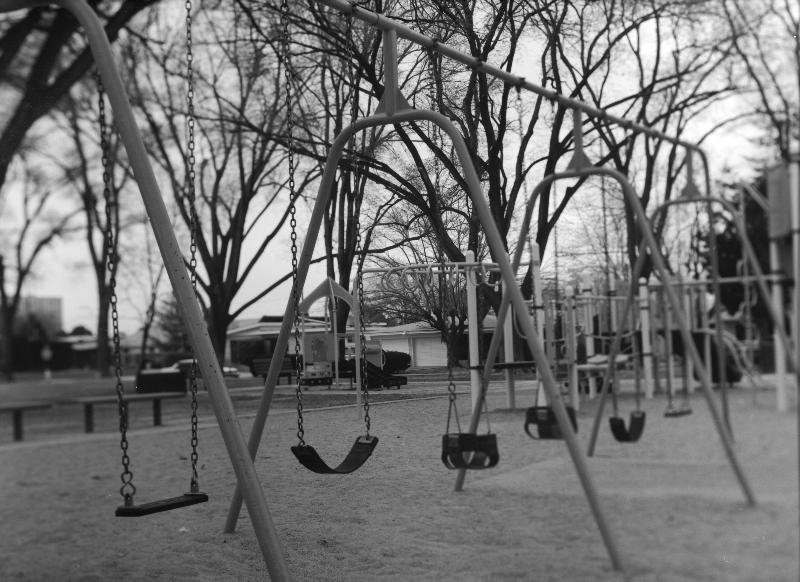Friday
Apr162010
Childhood has no rewind
 Friday, April 16, 2010 at 05:38PM
Friday, April 16, 2010 at 05:38PM "Childhood has no rewind: Our children cannot go back to grade school and get another education when the times are better and we all have more to give. When the playground is empty and the children are gone, either we will have sacrificed for them, or we won't." - from a Parents United poster (via Parents United for Public Schools update.)

Image source








Reader Comments (4)
I read the post title, and the last thing I thought about was what happens in the classroom.
While budget cuts can, indeed, do irreparable harm to public education, I wish those that prey on the specialness of childhood to make a point would be just as thoughtful when the manna is flying down from the state coffers--what does what we do in the classroom do for the child?
How much of their time do we waste to "get an education."
If nothing else, maybe slicing budgets will force us to look at what it means to be educated. Heck, I'm not sure I didn't learn more out on the playground (which are a lot emptier in good times and bad these days) than I did in the classroom.
(A good place to save money would be cutting out expensive testing with very questionable benefits--are you listening, Arne?)
Hi Michael,
I think the authors were probably thinking about school budget reductions leading to larger class sizes, fewer specialists like librarians, music, art and PE teachers, and fewer electives and extra curricular programs.
And yes, it does seem we always have plenty of money for tests!
Doug
I was talking about this very thing with a co-worker today. We are both educators, although not in the typical sense of the word. We talked about the push by tech-educators to apply a Web 2.0 collaborative approach to teaching/learning rather than a top-down model. I read today on Steve Hargadon's blog (via Epstein) that "teens and adults do not need schools and teachers, and in fact are infantilized and humiliated by their constraints". Today's kids don't want a lecturer to stand before them and preach the facts. They are already well-versed in ascertaining the facts on their own via internet searches, etc. Can we turn over the role of the teacher/lecturer to the students? If what we "give them" is a sense of strength in finding the information that they need when they need it, is that more beneficial than a bunch of random facts that they memorize, regergitate and forget? What better way to learn about other cultures than become involved in an online collaborative classroom with students their own age living in India or Africa or China? Learn effective people skills, internet safety, international manners by befriending a student around the globe through letters and interaction. There is a lot more there to benefit a child than to read a textbook about another country. We have ways to help them virually experience a culture rather than view a two-dimensional representation of what a Texan textbook editor thought would be important to know about that culture. And, with budget constraints in tow, many of the Web 2.0 tools are inexpensive... or free!
Hi Sarah,
Thanks for leaving your comment.
I am not sure I would go quite so far as Steve in his condemnation of schools and teachers, but I certainly think we can do a better job giving students a variety of learning experiences. Too much of any one method to me seems like a pedagogical mono-culture which is not healthy.
All the best and thanks again,
Doug